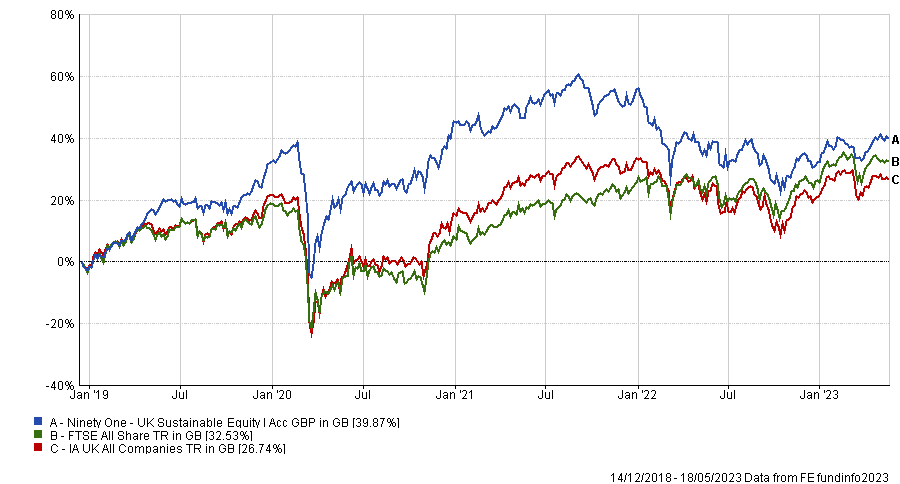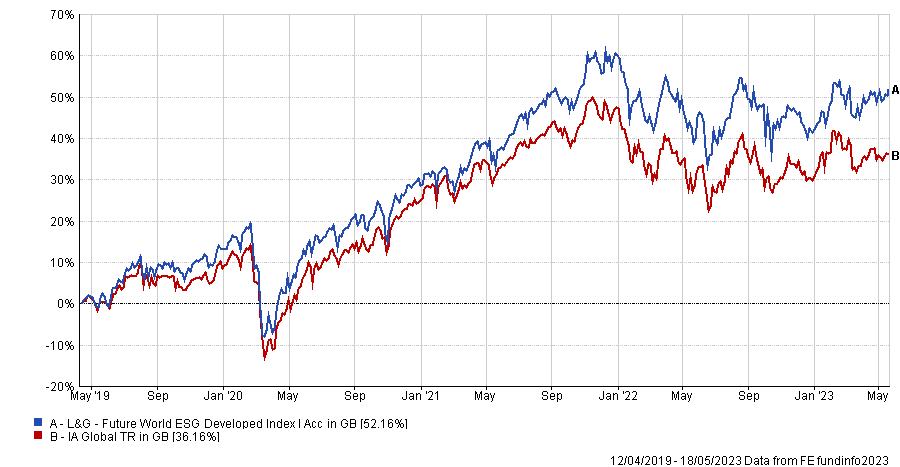It is more important than ever for investors to consider the impact that biodiversity loss could have on their portfolios, claims fund supermarket Hargreaves Lansdown. 
Monday 22 May is the International Day for Biodiversity and the platform used it to highlight the “increasingly clear” connection between healthy levels of biodiversity and a strong economy.
Dominic Rowles, lead environmental, social and governance (ESG) analyst at Hargreaves Lansdown, said: “Biodiversity is all the different kinds of living organisms in one area. From the variety of animals to plants, fungi and even micro-organisms like bacteria that make up our natural world.
“It’s vital to the survival of life on planet Earth and the International Day for Biodiversity was established by the United Nations to raise awareness of its importance."
With the increasing recognition of the ecological crisis facing the planet, biodiversity isn't just an environmental concern but an economic one as well. Half of the world’s GDP relies on nature and 75% of the world's poor depend on agriculture for their livelihood.
The World Wildlife Fund’s 2022 Living Planet Index reported an average decline of 69% in mammal, bird, amphibian, reptile and fish populations since 1970. “The report identifies several key reasons for this biodiversity decline, including habitat loss, species overexploitation, invasive species, pollution, climate change and disease,” Rowles said.
As these biodiversity challenges intensify, they also present significant risks to investors. To that end, Rowles argued that “biodiversity is quickly rising up the agenda for investors”. On the flip side, this presents a golden opportunity to drive forward the agenda for sustainable investment.
“Biodiversity is becoming a new frontier in sustainable investment,” the analyst said. “It’s more important than ever to consider the impact of biodiversity loss on the companies you invest in and what plans those companies have to avert the worst effects.”
For those who invest in funds, Rowles suggested investors “make sure they’re run by managers who consider the impact biodiversity loss could have on the funds’ investments” and highlighted two that fit the bill.
Ninety One UK Sustainable Equity
Ninety One UK Sustainable Equity invests in companies making a positive impact on society or the environment. Matt Evans has managed the fund since launch in December 2018 but has more than 24 years of investment experience overall, having previously managed funds at Colombia Threadneedle and Legal & General.
Performance of fund vs sector and index since launch

Source: FE Analytics
“Natural capital is one of the manager’s core pillars of analysis, and within natural capital, carbon, water and biodiversity are his key areas of focus. Each company’s impacts on these areas, both positive and negative, are assessed and may affect the manager’s view of the company’s growth and return potential,” Rowles said.
He also noted how some of Ninety One UK Sustainable Equity’s holdings directly help slow biodiversity loss, pointing to cellular agriculture specialist Agronomics. It creates cultivated meat from cell cultures rather than via traditional agriculture methods and requires less land, pesticide and fertiliser use than livestock and its byproducts.
L&G Future World ESG Developed Index
The second fund is L&G Future World ESG Developed Index, which tracks the Solactive L&G ESG Developed Markets Index. It has almost 1,500 constituents based across global developed markets and is diversified across lots of different sectors, including technology, healthcare and financials.
Performance of fund vs sector since launch

Source: FE Analytics
“The index invests more in companies that score well on a variety of ESG criteria – from the strength of its biodiversity programme and deforestation policies, to the number of women on the board and the quality of disclosure on executive pay. It also invests less in companies that score poorly on these measure,” Rowles explained.
He also said Legal & General Investment Management is “a loud champion of biodiversity”, with a biodiversity policy that says companies should proactively consider and address biodiversity issues.





